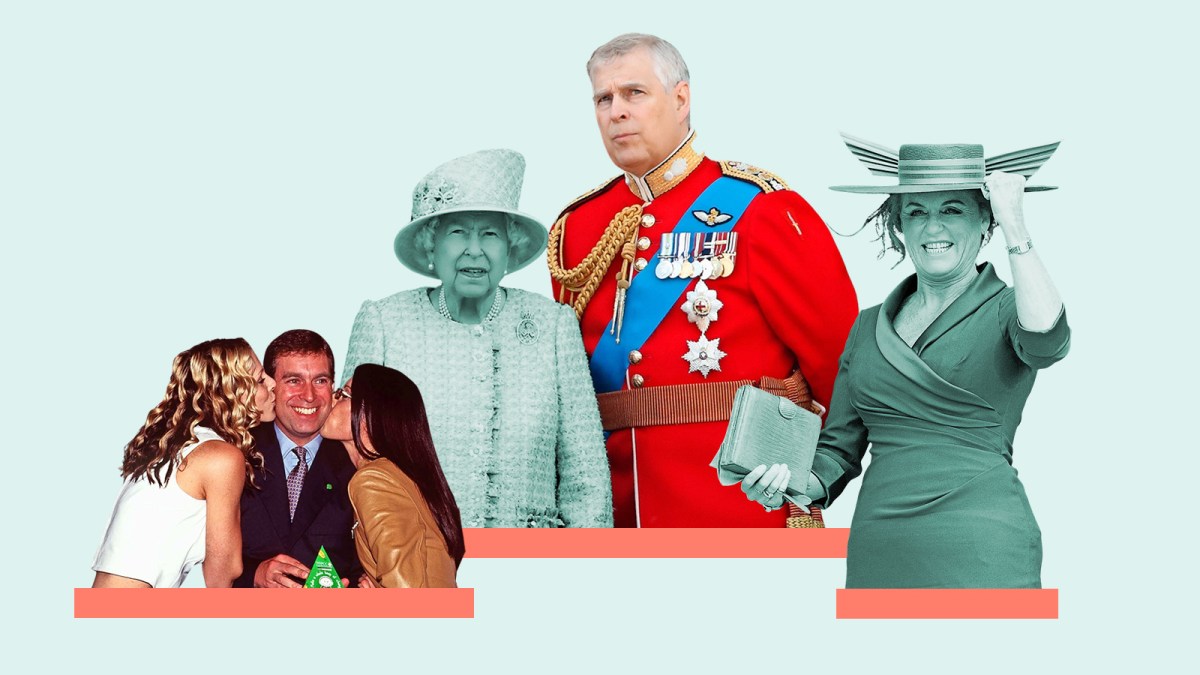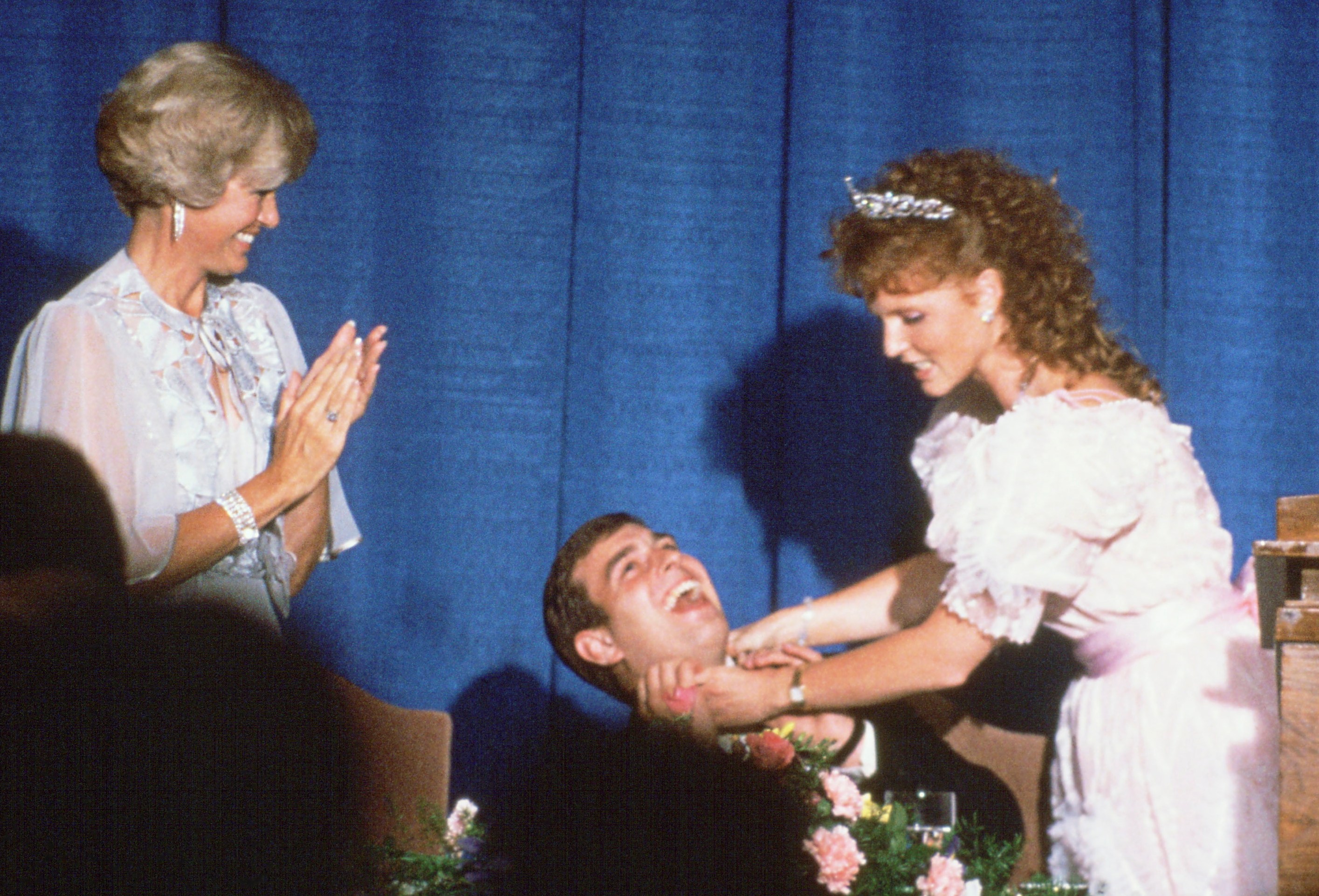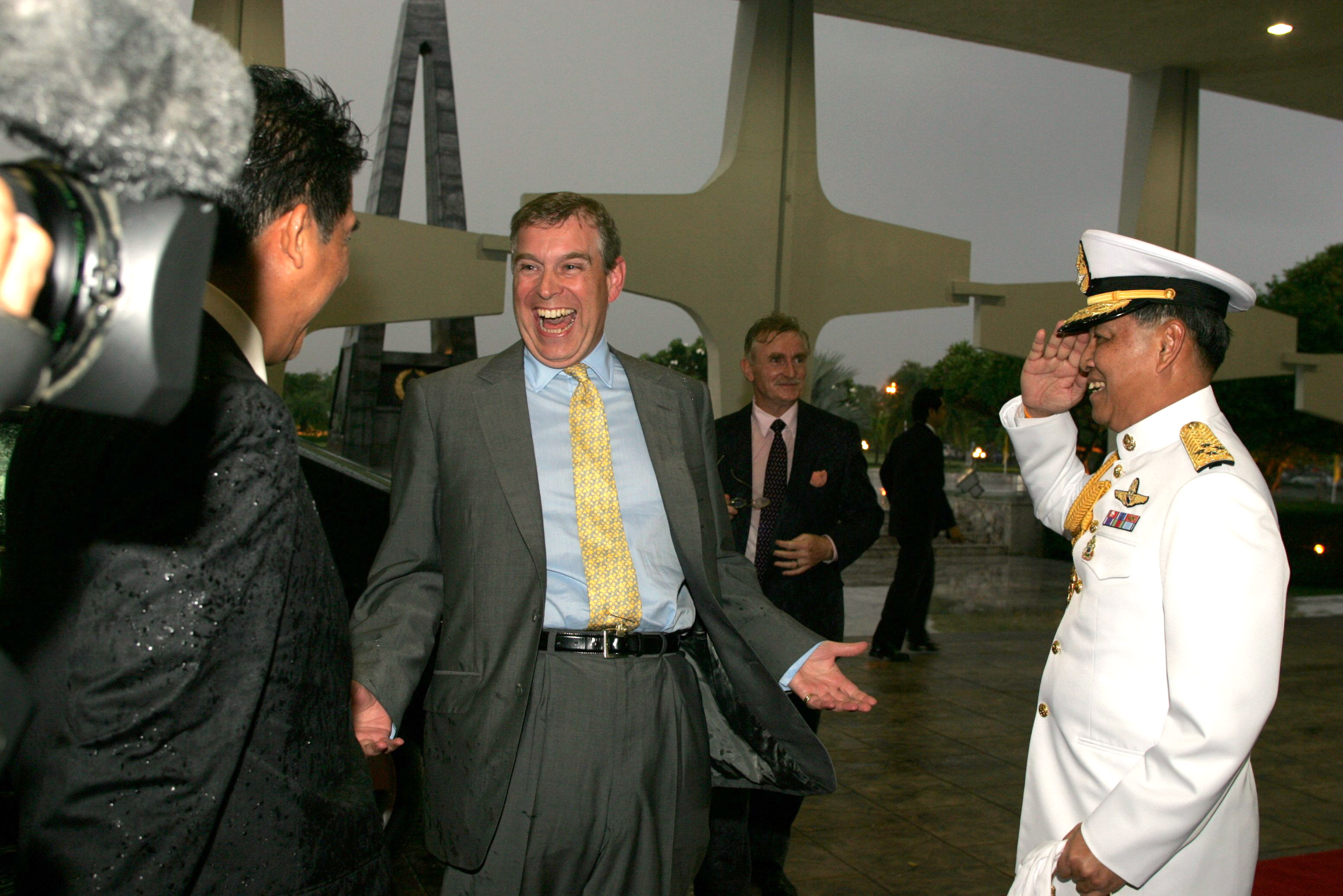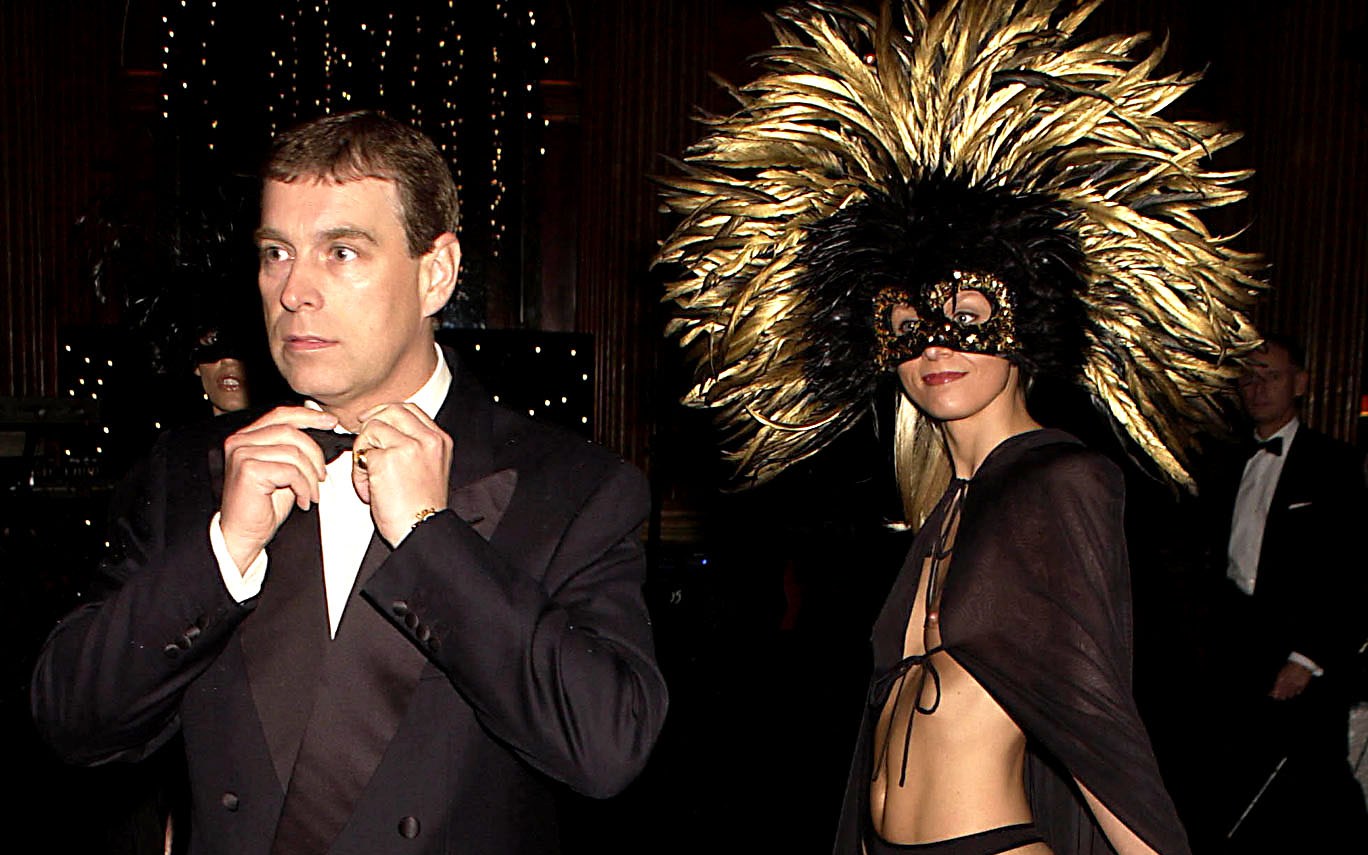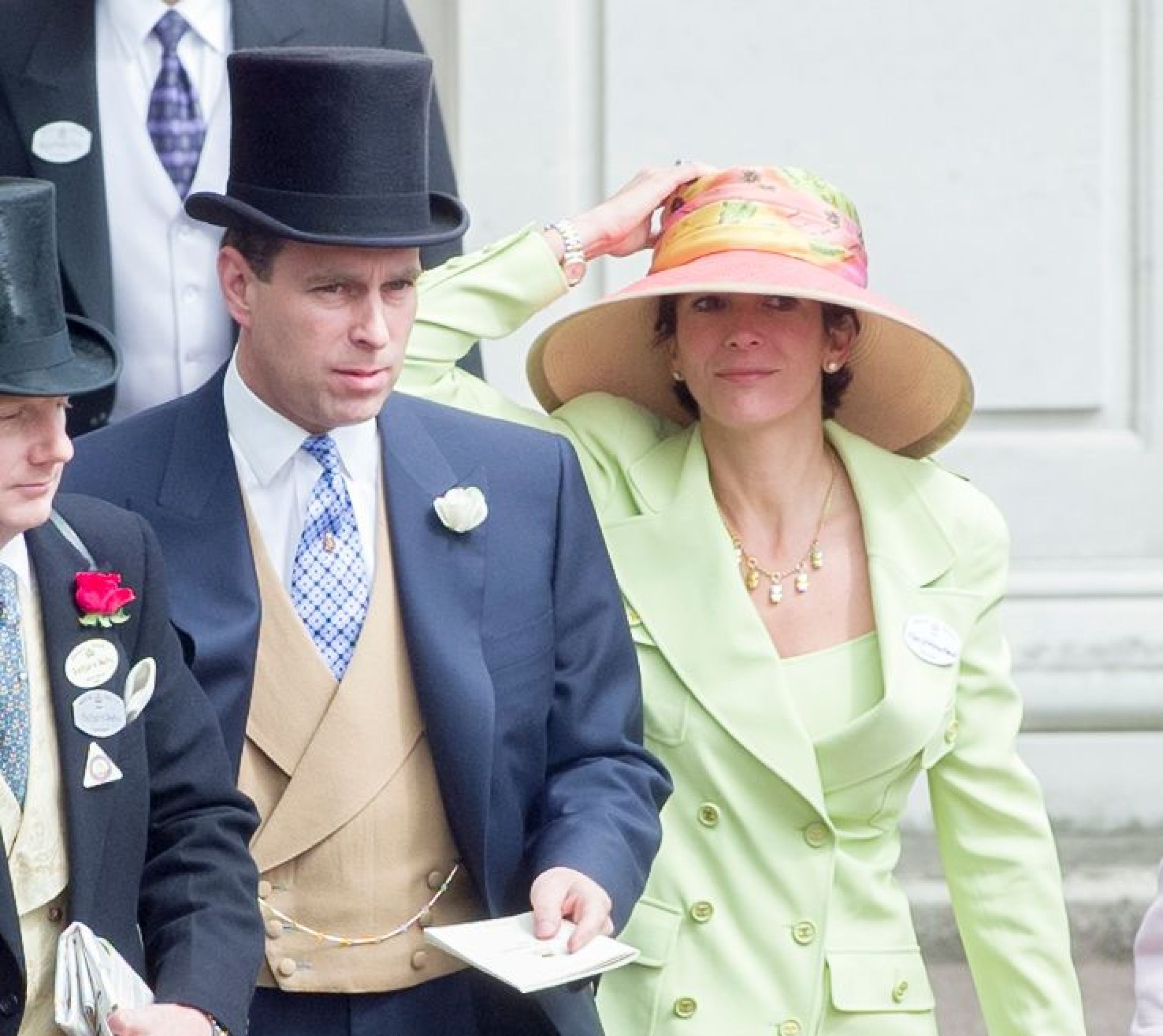When Andrew Lownie submitted his manuscript for his incendiary book about Prince Andrew and Sarah Ferguson, he was braced for heavy legal redactions. But in the end there were far fewer deletions than feared. “I was surprised by what the lawyers let through,” he tells me.
The result of this leniency is among the most lurid, marmalade-dropping, outlandish books published about a senior royal. Entitled: The Rise and Fall of the House of York makes Prince Harry’s Spare look positively restrained.
Over five splashy days of serialisation in the Daily Mail, we learnt that Andrew, 65, was a “serial sex addict” who has apparently slept with more than 1,000 women. We read of him bringing “tarts” with “ample breasts” into the Palace to dine with Queen Elizabeth. The priapic prince’s unsolicited hands wander onto knees under tables, or plunge women’s faces into pâté for a laugh. He calls one staff member a “f***ing imbecile” for getting his grandmother’s royal title wrong. His golf cheating reaches Trumpian levels of flagrancy and he is said to have left used tissues, soiled from his own autoerotic exertions, strewn on the floor of his bedroom for others to pick up.
The book is equally damning of Ferguson, 65, the Duchess of Excess, who racks up unpaid bills like a ruinous Georgian prince. She allegedly spends £25,000 in a single hour in Bloomingdale’s. Her butler has to get into work at 4.30am to put watercress on ice.
The Duke and Duchess of York on a visit to Canada, where she jokingly pretended to throttle him during a speech, below
TIM GRAHAM PHOTO LIBRARY
The grand constitutionalist Walter Bagehot famously said of the royal family that one mustn’t “let daylight in on magic” by bringing them into the grubby arena of the quotidian. Lownie has taken the opposite approach, applying a UV light to Andrew and Fergie’s Montrachet-soaked, Epstein-sponsored, whoopee-cushioned shagathon of a life. It is not a pretty sight.
But is it all, well, true? Yes, insists Lownie, when we meet at his chaotic Westminster house. His wife, Angela, brings us a jug of water and we sit down amid towering piles of books and files. “These are some of the key documents,” Lownie says excitedly, waving a binder at me.
Andrew Lownie at home in Westminster
JEFF GILBERT/SHUTTERSTOCK
The 64-year-old literary agent and author is affable, unfiltered and by now quite familiar with making scandalous allegations about the royal family. His 2019 book about the Mountbattens alleged that Lord Mountbatten had young boys from a home in Kincora trafficked to his castle in Ireland so that he could perform sex acts on them.
And what of privacy? Lownie writes of Andrew’s entitlement, but what of ours? Are we entitled to know the intimate secrets of his bedroom, however boorish? Does the story about the stained tissues really belong in the public sphere? “Well no, well, I think it is quite revealing about the way he behaves, to drop them around for other people to pick up. People have different views on where they draw the line.”
Lownie makes the point that much of Andrew’s life has been subsidised by the public purse and that many of his escapades abroad happened while he was travelling on the taxpayer’s dime, as special representative for international trade and investment between 2001 and 2011.
Biographers are “out to make money”, he also acknowledges. “You’re paid for doing this interview. The lawyers are paid to write those letters. We’re all making a living.”
On a visit to Thailand, 2006
SHUTTERSTOCK EDITORIAL
In fairness to Lownie, his book is not just a catalogue of reckless royal indulgence; it also investigates the funding behind decades of unrestrained York hedonism. He insists that the real scandal of Andrew is “financial not sexual” and emphasises that he is a staunch monarchist. “I’m not a raving lefty,” he says. “I’m a former Conservative parliamentary candidate. It’s because I’m very keen on the monarchy that I want it to survive.”
Andrew’s finances have puzzled many an investigative journalist. Where do the millions he’s spent refurbishing and running Royal Lodge come from? Who provided the multimillion-pound payoff for Virginia Giuffre?
The territory Lownie crosses here is more familiar, taking in the £750,000 from the Turkish millionaire Nebahat Isbilen that ended up in Andrew’s Coutts account, described as a gift for Princess Beatrice’s wedding and later repaid. There are gifts to Ferguson from the multimillionaire scrap metal merchant David Rowland and huge loans to Andrew from Banque Havilland, owned by the Rowland family. Rowland accompanies the duke on some of his special representative trips and, Lownie alleges, Andrew often used these taxpayer-funded jaunts to conduct his own business activities too.
What surprised Lownie was the “sheer brazenness” of the whole thing. “This is what shocked me, the cover-up from the Palace,” he says. “They knew exactly what was going on. People are not going to like it, but the Queen was colluding in this. I originally thought she just put her head in the sand. But I increasingly have come to the view that she knew exactly what was going on and allowed it to happen.”
Unburdened by maternal adoration, Lownie thinks the King has always seen his brother much more clearly. “As does William.”
The duke at a Chinese new year party in the 2000s with the costume theme “mystery, vampire and seduction”
DAVE BENETT/GETTY IMAGES
We’ve only seen the “tip of the iceberg” on Andrew’s finances, Lownie warns. “You know, there’s money clearly from, we know from China. There’s clearly a lot of money in the Middle East.”
Another dubious source of funds for the Yorks was Jeffrey Epstein, the sex-trafficking financier who, according to Lownie, Andrew also invited to Windsor, Balmoral and Sandringham. It is a friendship that led to Andrew’s expulsion from official royal life.
“They clearly use each other,” says Lownie. “Andrew gave Epstein respectability. He was able to open doors. And Andrew has admitted … that Epstein introduced him to people he might not normally have met.”
Part of the Epstein problem, in Lownie’s view, was Andrew’s loneliness. The prince is not a man who has ever had many friends. “He has hangers-on people, business contacts or people he transacts with. But there doesn’t seem to be many friends there or anyone who can kind of rein him in.”
One apparent friend was Ghislaine Maxwell, Epstein’s courtesan, and Lownie writes that the two were intimate. According to Lownie, she regularly visited Andrew at the Palace and stayed the night. “So I’m assuming there was a sexual relationship and they weren’t playing Monopoly,” he says.
Andrew and Ghislaine Maxwell at Ascot, 2000
SHUTTERSTOCK EDITORIAL
Lownie’s attempts to investigate Andrew’s time as special representative bumped up against thick layers of bureaucratic obstruction. He made hundreds of freedom of information requests from the Foreign Office and the Department for Business and Trade. But all too often they were rejected on spurious grounds. “There is a culture of secrecy which is drilled into the civil service,” he says. “These are the prefects and this is their power.”
Much of Lownie’s information on Andrew comes from speaking to diplomats, the prince’s former naval colleagues and members of his social circle. He was surprised by how many were happy to talk and he names many of his sources at the end of the book.
The two Andrews are of similar age and attended rival Scottish public schools at the same time. “I used to play rugby [against him],” says Lownie. “We all gave him a kicking in the scrum because we all hated him.” His wife is of a similar age to Ferguson. “They were brought up together, they were neighbours,” he says. “So I knew quite a lot of the stories. For example, the story which no one has picked up on, Prince Philip and Susan Barrantes [Ferguson’s mother] being lovers. That all came from family information.”
Fighting against establishment secrecy has become something of an obsession for Lownie, who was once a barrister. When researching his Mountbatten book, he spent a sum approaching £500,000 on legal expenses fighting the Cabinet Office, which was blocking the release of Mountbatten’s personal archive, bought from the family by the University of Southampton.
About £100,000 of the legal costs were funded by donations; the rest was his savings. The bulk of the archive was eventually released, but Lownie didn’t receive his costs. “It hit me pretty hard,” he says. “Our house was in jeopardy, all my savings went, a legacy from my mother for the children went.” In the end, the documents that he gained access to were innocuous. Does he regret fighting so hard for them? “Yes, to be honest.” His wife, he says, is a “saint”.
Lownie himself is a strangely English mixture of erudition and prurience, careful archivist and loose gossip-monger. His hope is that this book wakes people up to how rusty our “Ruritanian” institution of monarchy has become. To survive, he argues, it must open up and adapt. “The institution relies on the trust and support of people. We will allow them all sorts of things if we feel that they are value for money and they’re being open and they’re not abusing their position.”
A theme he’ll come back to soon, no doubt? “I suppose I am a bit of an obsessive nutter,” he says with a grin. “But sometimes you need that.”
